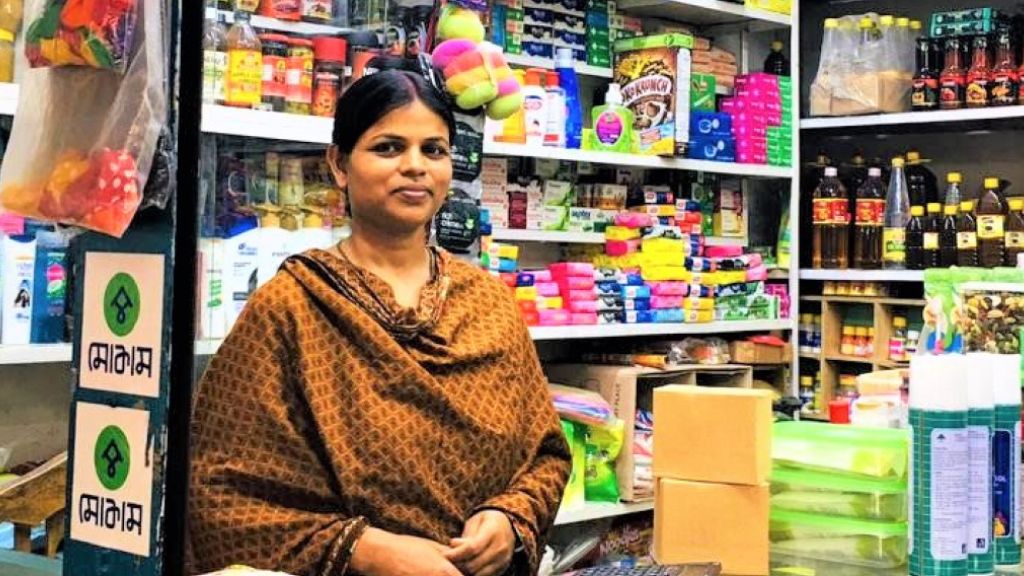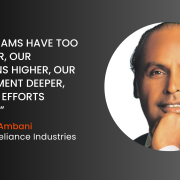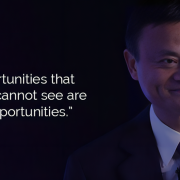| বাংলায় পড়ুন | Researchers and Reporters: Shama Sultana Anika Taieba |
Most large businesses spend considerable money on marketing and advertising. However, the financial value of small and medium-sized enterprises is not very high. Consequently, it takes a long time for these low-capital companies to prosper. ShopUp, the biggest online marketplace, has been a game-changer for Bangladesh’s small and medium-sized businesses (SMEs) in this regard. Afeef Zaman, Siffat Sarwar, and Ataur Rahim Chowdhury are the co-founders of ShopUp, which has transformed how small and medium-sized businesses in the nation operate, beginning with grocery stores.
ShopUp is a digital platform that has overcome small businesses’ primary challenges by combining technology, business marketing, integrated financial systems, and commerce. It has already shown to be a significant contributor to the economic expansion of the nation.
The Beginning of ShopUp
A significant observation of a seemingly routine situation serves as the starting point for the ShopUp story When ShopUp co-founder Afeef Zaman visited his grandfather’s home in Patuakhali, he saw that the predominance of plastic products was hurting the traditional potters there in the little market. Because of this experience, Afeef Zaman developed a digital platform allowing small and medium-sized business owners to grow their enterprises. Alongside this, Bangladesh’s culture and legacy would also be protected. He later discussed the issue with his friends, who came up with the concept of ShopUp.

The beginning of ShopUp: Unveiling a new horizon in the development of small and medium businesses in the country. | Photo collected.
The story of success
In collaboration with BRAC, ShopUp introduced the nation’s first embedded finance solution after registering in 2018. For SMEs, it attempted to address issues with product availability, transparency, precise pricing, and effective delivery systems. ShopUp has expanded over time to become the biggest internet platform for promoting businesses in the country. In recent years, ShopUp has collaborated with international organizations including the Bill & Melinda Gates Foundation and Omidyar Network. The firm raised approximately US$3.2 million in external financing in April 2019, which reflected its increasing expansion. RedX, the delivery service offered by ShopUp, is the biggest in the nation. In Bengaluru, India, ShopUp made its international appearance earlier this year. The digital platform acquired Voonik, an Indian e-commerce website. ShopUp has consistently broadened its range of activities in this manner.
Impact during the pandemic
The global COVID-19 pandemic has presented enterprises with hitherto unheard-of difficulties. The majority of Bangladeshi stores came online. Consequently, they are relying on ShopUp and similar platforms to stay afloat. Transactions on ShopUp rose by 8.5 times each week between April and August 2020.

Impact of the Pandemic: A story of challenges and changes in the global economy and livelihoods. | Photo collected.
Contributions both social and economic
As of right now, ShopUp serves over 655,000 SMEs. Through ShopUp, numerous women-led SMEs are operating successfully, reducing gender imbalance in the business sector. The empowerment of traditional craftspeople and small-scale artists is another goal of ShopUp. By doing this, Bangladesh’s rich cultural legacy is being preserved. All things considered, ShopUp is significantly contributing to the nation’s economic growth.

Social and Economic Contribution: A glimpse of collaboration in the country’s progress. | Photo collected.
Future goals
ShopUp is primarily focused on further digitizing Bangladesh’s retail industry. The company has previously supported small business owners by giving them the resources and technology they require to thrive in a cutthroat industry. Regarding ShopUp, Klaus Wang, Vice President, Sequoia Capital (India), Singapore, stated that the company is empowering its clients with trustworthy and quick delivery, high-quality products, and simple financing. ShopUp’s stability and flexibility during uncertain times were also commended by Smita Aggarwal of Flourish Ventures.
A monument to the strength of creativity and perseverance is ShopUp’s transformation from a modest concept to an incredible enterprise. ShopUp has established a standard for Bangladesh’s small and medium-sized businesses by addressing the particular difficulties faced by the retail industry there. For small business owners, its expansion and advancement offer hope that they may use technology to transform their endeavors in a way that will stay.





























Comments